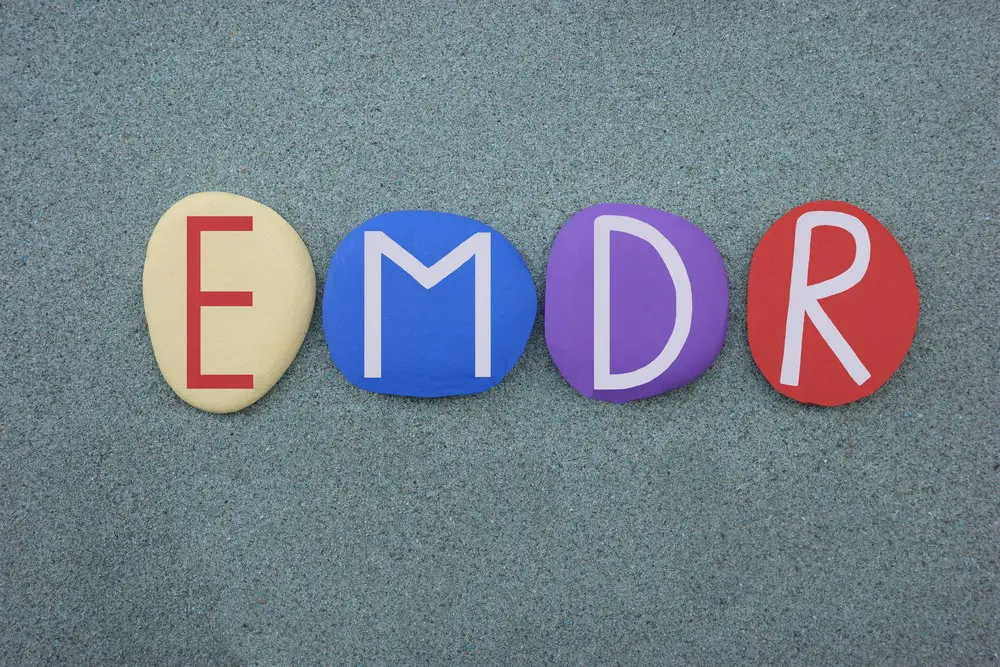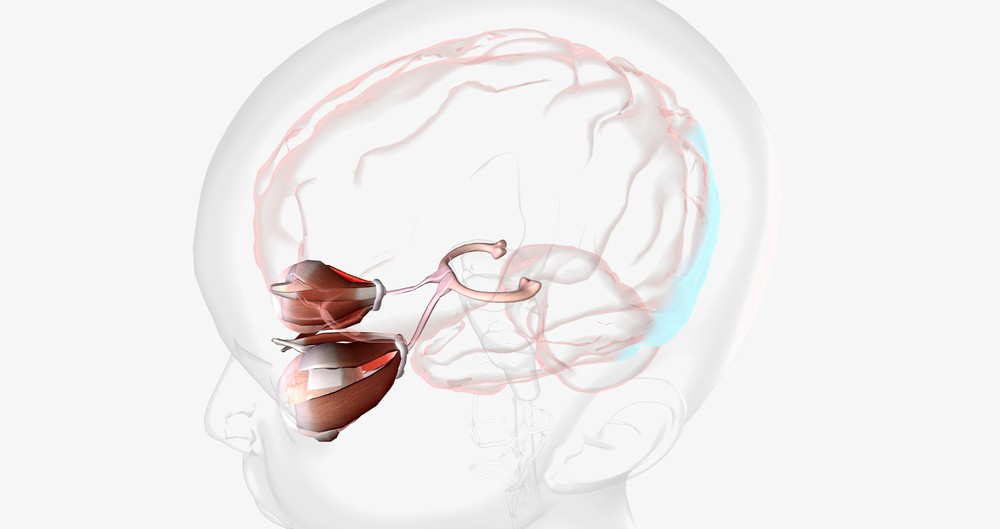As a BetterHelp affiliate, we receive compensation from BetterHelp if you purchase products or services through the links provided
Eye Movement Desensitization and Reprocessing (EMDR) therapy has garnered attention recently for its effectiveness in treating individuals with trauma and certain mental health disorders. While EMDR therapy has helped countless people gain relief from distressing symptoms, it’s essential to recognize that not everyone may be suitable candidates for this treatment approach. This article delves into the specifics of EMDR therapy and highlights who may not be the best fit for this therapy.
Some individuals might not benefit entirely from EMDR therapy due to existing physical or mental health conditions or because other therapeutic approaches might better fit their situation. Understanding these potential contraindications is vital for clients and therapists to identify the most appropriate treatment modality. The goal is to ensure the therapy is effective, safe, and suitable for the individual’s unique needs and circumstances.
Key Takeaways
- EMDR therapy may not be ideal for everyone due to specific physical or mental health conditions.
- A good understanding of potential contraindications ensures the most appropriate treatment selection.
- Consultation with a qualified therapist is crucial to determine if EMDR therapy is the right choice for an individual.

Understanding EMDR Therapy
Eye Movement Desensitization and Reprocessing (EMDR) is a psychotherapy approach that has gained popularity recently. It is designed to support individuals with PTSD and other trauma-related psychological disorders. EMDR therapy is built on the Adaptive Information Processing (AIP) model, which posits that the brain has an innate ability to process information adaptively and heal from psychological suffering.
EMDR therapy involves guiding a client through a series of steps, including accessing distressing memories, desensitizing emotions related to the memories, and installing adaptive beliefs. One of the key aspects of this therapy is using bilateral stimulation, such as eye movements, to stimulate the brain’s information processing system.
While EMDR can be an effective treatment for many individuals, it may not suit everyone. Certain factors and situations may make a person an unsuitable candidate for EMDR therapy, and these should be considered before embarking on this therapeutic journey.
General Contraindications for EMDR
Eye Movement Desensitization and Reprocessing (EMDR) is a widely used therapeutic approach for treating trauma and other mental health issues. However, it is essential to consider that not everyone is a suitable candidate for EMDR therapy. This section will discuss several general contraindications for EMDR and explain why certain individuals may not be suited for this type of treatment.
One group that may face difficulties with EMDR is those with severe anxiety disorders. Since EMDR can trigger strong emotional responses, individuals with high anxiety levels might experience heightened distress during the sessions. This may lead to complications in the therapeutic process and hinder the desired progress.
Another crucial factor to consider is the presence of significant personality disorders. For individuals with borderline or antisocial personality disorder, engaging in EMDR therapy might not be beneficial due to their complex and fluctuating relational patterns. These individuals may require alternative therapeutic approaches that address the underlying issues of their personality structure.
Patients diagnosed with bipolar disorder or psychosis can also display contraindications for EMDR. These populations may experience an exacerbation of their symptoms or even trigger a manic or psychotic episode following the therapy. Mental health professionals must carefully assess these risks before recommending EMDR as a treatment option.
Both men and women can benefit from EMDR therapy, but it is essential to consider their unique mental health conditions and needs. Research shows that women are more likely to experience certain types of trauma, such as sexual assault and domestic violence. This factor may affect their response to EMDR and require tailored treatment plans.
In summary, while EMDR is an effective and beneficial therapeutic approach for many individuals dealing with trauma and mental health issues, it may not suit everyone. General contraindications for EMDR include severe anxiety disorders, significant personality disorders, bipolar disorder, and psychosis. Mental health professionals must carefully evaluate each client’s specific needs and medical history before recommending EMDR as a treatment option.
Specific Conditions and Situations
EMDR therapy may not be suitable for everyone. Several conditions and situations could limit the effectiveness of this treatment or cause harm to individuals.
Addiction: Those struggling with substance abuse, including alcohol and drugs, often require comprehensive treatment plans that address the root causes and contributing factors. EMDR may not be the best choice for addressing addiction, as it primarily focuses on trauma. Instead, Cognitive Behavioral Therapy (CBT) might offer a better framework for addressing addiction-related issues.
Eating Disorders: Individuals with eating disorders may need different treatment approaches targeting their unique challenges. Although EMDR may help address traumatic events that contributed to the development of an eating disorder, it may not be sufficient to tackle all aspects of the problem.
Complex PTSD: EMDR therapy is designed to help process specific traumatic memories. However, for individuals with complex PTSD, which often results from ongoing, repeated trauma, the therapy may not be as effective. These individuals might need a combination of therapies, such as CBT, to help address the multiple issues arising from their complex trauma history.
Generalized Anxiety Disorder: EMDR focuses on trauma processing but is not specifically designed to treat anxiety disorders. For those with Generalized Anxiety Disorder (GAD), CBT or other anxiety-focused therapies may address the underlying causes and symptoms more effectively.
Hallucinations: Individuals experiencing hallucinations might find it challenging to participate in EMDR therapy. EMDR requires a strong sense of reality; thus, those struggling with reality distortion may not benefit from the treatment. A thorough assessment should determine if other interventions, such as medications or other therapy types, could be more beneficial in these cases.
In conclusion, it is essential to consider the individual’s unique needs, symptoms, and diagnosis when determining if EMDR is an appropriate treatment option. Some conditions and situations may warrant alternative therapies or a combination of treatments, ensuring that patients receive the proper care for their circumstances.
Physical Health Concerns
EMDR (Eye Movement Desensitization and Reprocessing) therapy effectively treats various psychological disorders. However, certain physical health concerns may deem a person unsuitable for EMDR.
Individuals experiencing seizure disorders need to exercise caution before engaging in EMDR therapy. Eye movements and other stimulation methods during EMDR may inadvertently trigger seizures in some patients. Therefore, consulting with a healthcare professional to weigh the potential risks and benefits is crucial.
Chronic pain patients might also face challenges during EMDR therapy. As EMDR addresses emotional distress through the eight stages, it may inadvertently intensify physical sensations, including pain. While EMDR can help manage the psychological aspects of chronic pain, individuals should work closely with their therapist to monitor and adjust the treatment as needed.
Another aspect to consider is the impact of EMDR on relationships. Patients undergoing EMDR may experience intense emotions or temporary distress, which could strain relationships with friends, family, or partners. Therapists must ensure that appropriate support systems are in place to handle potential ramifications on interpersonal dynamics.
In conclusion, while EMDR therapy has proven beneficial for many, individuals with physical health concerns such as seizure disorders and chronic pain and those with sensitive relationships should carefully evaluate their suitability for this treatment method.
When EMDR May Not Be Effective
Eye Movement Desensitization and Reprocessing (EMDR) therapy is an effective treatment for many individuals who have experienced trauma. However, there are certain situations and conditions where EMDR therapy may not be the most appropriate or effective choice.
Some individuals may not be good candidates for EMDR if they struggle to regulate emotions and feelings. These individuals might find it challenging to cope with distress during the EMDR process, potentially causing further difficulties in the therapy process.
EMDR may not be effective for individuals with a history of severe abuse, particularly when addressing childhood trauma. In these cases, a more comprehensive approach that addresses underlying negative thoughts and emotions might be needed before EMDR can be utilized effectively.
Similarly, EMDR may not be the best choice for individuals actively experiencing flashbacks or other overwhelming manifestations of traumatic events. In these situations, stabilization and emotion regulation techniques may need to be emphasized first to establish a safe therapeutic environment before engaging in EMDR therapy.
It is also crucial to note that EMDR therapy may not be suited for individuals with certain medical or neurological conditions. For example, some people with epilepsy or other seizure disorders might experience increased seizure activity during EMDR sessions, making the therapy less effective and risking their safety. Additionally, individuals with severe dissociative disorders may not benefit significantly from EMDR therapy, as it may exacerbate dissociative symptoms or hinder the effective processing of past events.
Lastly, EMDR therapy may not be optimal for those with difficulty connecting their emotions and feelings to their body sensations. EMDR relies heavily on body awareness; the therapy may be less effective if an individual struggles with this connection.
In conclusion, EMDR therapy can be a powerful treatment for many individuals who have experienced trauma. However, it is essential to recognize the situations and conditions where EMDR may not be the most appropriate or effective option. Careful consideration of individual needs, situations, and therapeutic goals is crucial to determine the best therapeutic approach for each person.
Alternative Therapies and Approaches
EMDR is a widely recognized and efficient therapy for processing trauma. However, it may not be suitable for everyone. Several alternative approaches exist for individuals who are not good candidates for EMDR.
In some cases, traditional talk therapy can be a more suitable option. Talk therapy allows patients to discuss their feelings and experiences, creating a safe space for emotional processing. Cognitive Behavioral Therapy (CBT) is a popular form of talk therapy that focuses on identifying and modifying negative thoughts and behaviors. For individuals who may have difficulty with rapid eye movements or other sensory components of EMDR, talk therapy can be well-balanced and effective.
Another alternative therapy to consider is exposure therapy. Exposure therapy works by gradually exposing individuals to their triggers or traumatic memories in a controlled environment. This helps them develop techniques for reducing anxiety and improving their performance. Over time, repeated exposure to the trauma can reduce anxiety and improve coping skills.
For some individuals, medication may be a more appropriate treatment option. Antidepressants, anti-anxiety medications, or mood stabilizers can be prescribed to help alleviate symptoms of post-traumatic stress disorder (PTSD) or other anxiety disorders. Medication can be used with other therapies, such as talk therapy, to provide a comprehensive and more effective treatment plan.
Stress reduction techniques, such as mindfulness practices, can also be helpful for individuals who are not good candidates for EMDR. Mindfulness involves being present and non-judgmental at the moment, which can help individuals gain control over their emotions and reactions to their environment. Deep breathing exercises, progressive muscle relaxation, and meditation are stress reduction techniques that can help individuals reprocess their trauma and regain life balance.
In conclusion, while EMDR is an effective treatment for many individuals, there are alternative therapies and approaches for unsuitable candidates. From traditional talk therapy to medication and stress reduction techniques, multiple options are available to address individual needs and preferences in a neutral, knowledgeable, and clear manner.

The Importance of a Qualified Therapist
EMDR therapy is an effective and widely recognized treatment for individuals suffering from the effects of trauma, but a qualified and experienced therapist must conduct it. A therapist with inadequate training or experience may not properly guide the client through the EMDR processing, which can lead to incomplete results or exacerbate the symptoms experienced by the individual.
A qualified EMDR therapist is well-versed in identifying the triggers related to traumatic experiences and ensuring that the client is prepared for the therapy sessions with proper grounding techniques. This is vital in helping clients feel safe and supported as they navigate difficult memories and emotions.
Additionally, a skilled EMDR therapist is proficient in managing any strong emotional reactions that may arise during the therapy session. This is crucial for maintaining a safe environment where clients can comfortably engage in EMDR processing. An untrained therapist may struggle to help the client effectively work through these intense emotions, possibly causing the therapy to be less effective or even harmful.
Moreover, the EMDR therapist must be able to monitor the client’s progress and adjust the therapy plan accordingly. A well-trained therapist will be able to recognize when the treatment is not working or needs to be modified, ensuring that the client receives the most beneficial outcome from their EMDR therapy.
In summary, it is of utmost importance to find a qualified and experienced EMDR therapist to ensure a safe and effective treatment process. With the right therapist guiding the session, clients are more likely to experience reduced trauma-related symptoms and improved overall well-being.
Frequently Asked Questions
When is EMDR not recommended?
EMDR is generally not recommended for individuals with certain medical or psychiatric conditions. These may include:
- Severe or unstable medical conditions
- Active substance abuse or addiction issues
- Acute suicidal or homicidal thoughts
- Certain psychosis or dissociative disorders
What are the potential risks of EMDR?
As with any therapy, EMDR carries some potential risks. These may include:
- Temporary increase in emotional distress or anxiety
- Unwanted or disturbing memories resurfacing
- Vivid dreams or nightmares related to the trauma
- Physical reactions, such as dizziness or nausea
What conditions might not be suitable for EMDR?
Some conditions that might not be suitable for EMDR include:
- Severe or complex post-traumatic stress disorder (PTSD)
- Personality disorders, particularly borderline personality disorder
- Developmental trauma or attachment issues
- Certain anxiety disorders, such as obsessive-compulsive disorder
Are there any medical contraindications for EMDR?
Medical contraindications for EMDR may include:
- Recent or unstable medical conditions affecting the brain, such as head injury or seizures
- Certain medications, particularly those affecting memory or attention
- Uncontrolled hypertension or cardiovascular issues
How to determine if someone is unsuitable for EMDR?
Therapists need to conduct a thorough assessment before starting EMDR. Factors to consider include:
- The individual’s psychiatric and medical history
- The severity of current symptoms and functioning
- Motivation and capacity for engaging in therapy
- Presence of other traumas or unresolved issues
What factors can lead to unsuccessful EMDR outcomes?
Some factors that may contribute to unsuccessful EMDR outcomes include:
- Inadequate assessment or treatment planning
- Insufficient rapport or trust between therapist and client
- Unrealistic expectations or lack of commitment to the therapy process
- Interruptions or disruptions to the therapy process, such as life stressors or changes in medication
- 3 Ways Wearing a Hat Can Help Lower Your Stress Levels - April 19, 2025
- Breaking the Silence: Why Men’s Mental Health Matters More Than Ever - April 15, 2025
- How to Transform a Home’s Patio Space into a Relaxing Space - March 23, 2025
This site contains affiliate links to products. We will receive a commission for purchases made through these links.



